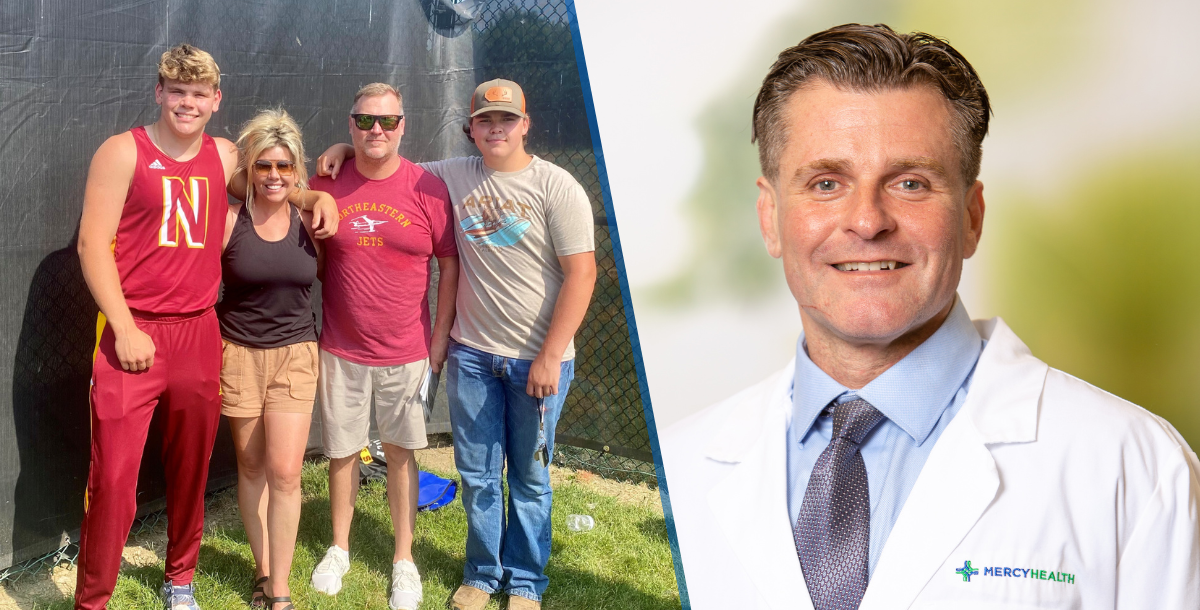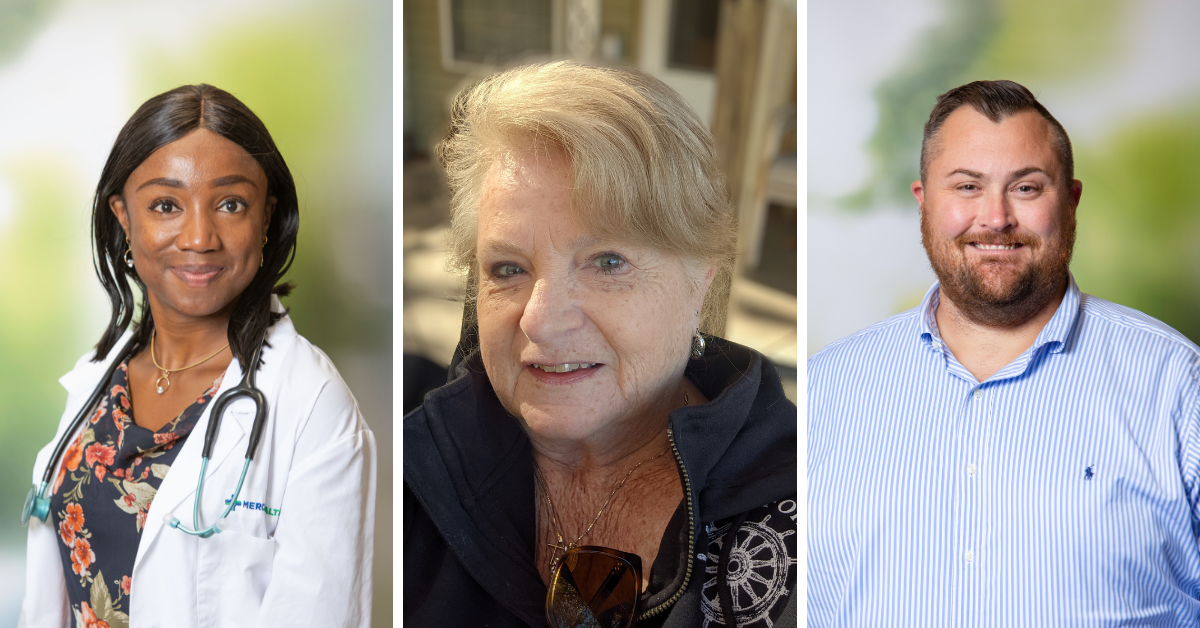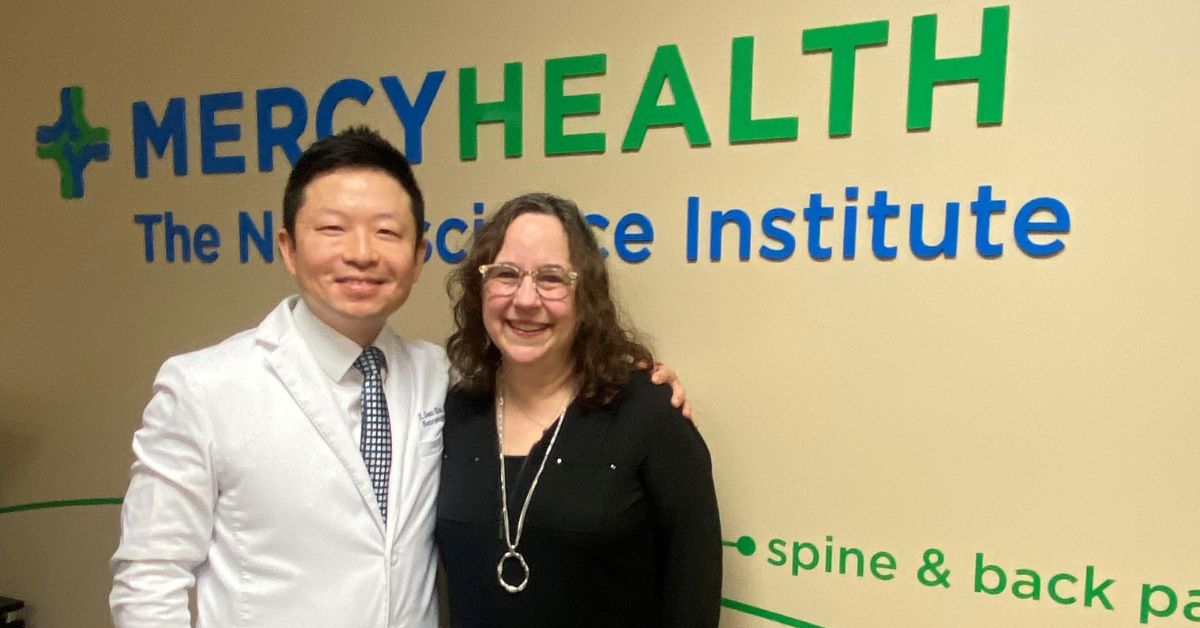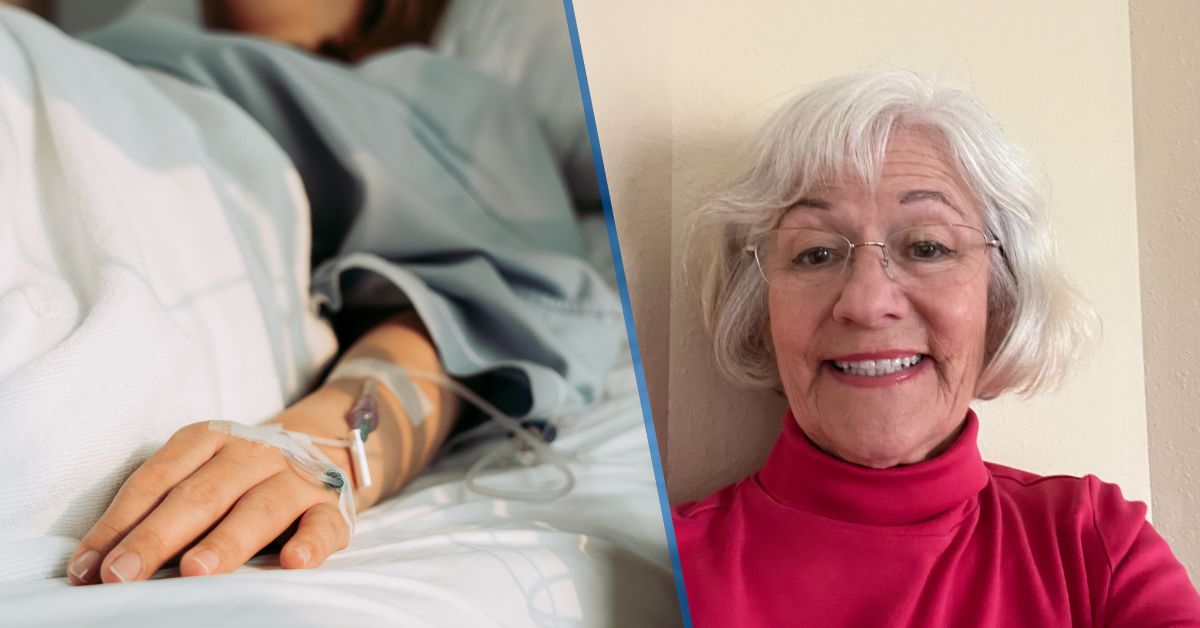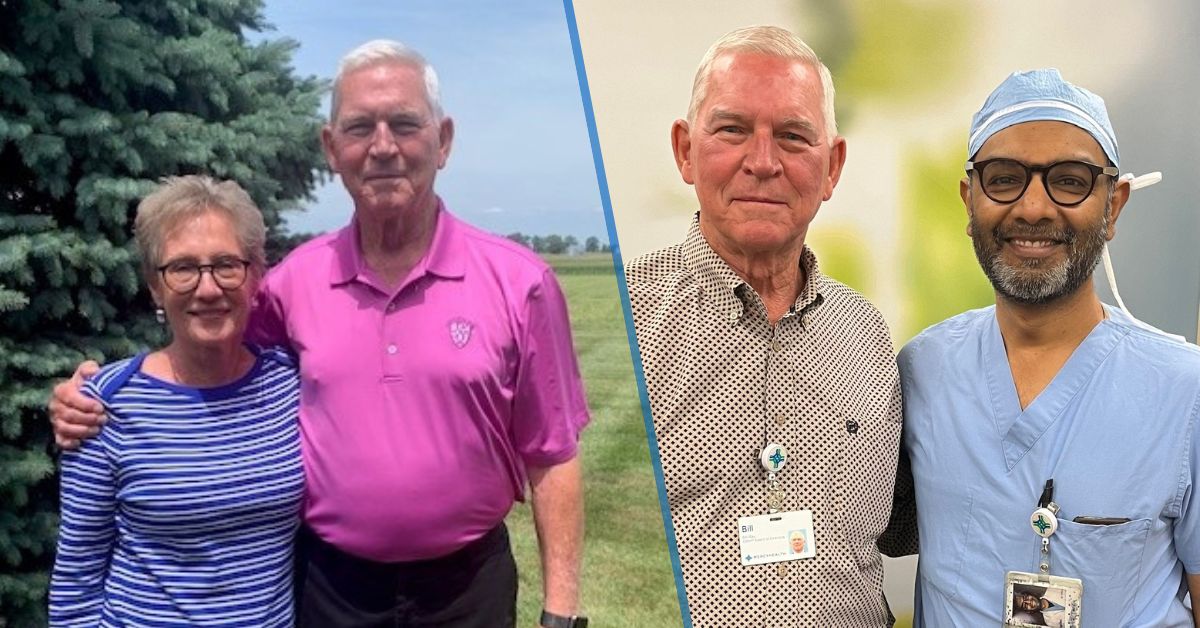September 25, 2024, started out as just another normal day for Danielle Gillam (pictured above, left with her family). However, it quickly became a day she’ll never forget.
“You don’t think at age 50 something like that is going to happen to you. I’m healthy. I’m not overweight. I don’t smoke. You just never think something like that,” she says.
After starting the day with some housework, Danielle was hit by a wave of exhaustion. She chalked it up to not getting enough sleep, but soon it was clear the problem was far worse than a lack of rest.
“I was having some arm weakness and balance issues. I was just kind of struggling to stay upright,” she recalls.
Still, she blamed her worsening symptoms on fatigue, never suspecting she was in the middle of a life-threatening medical emergency.
“I hadn’t had anything like this in my family,” Danielle explains. “I didn’t really know anything about strokes – I mean, I knew about them, but I didn’t know losing your balance and feeling super tired were symptoms.”
Even though she didn’t realize what was happening to her, she knew it wasn’t good and finally made the call to her husband.
“When he answered I couldn’t talk at all, so I just started to cry.”
Fortunately, her husband was close by and able to get to Danielle quickly, promptly calling 911 for help. After that, things happened fast.
“The paramedics came and took me to the hospital. They had me in the CAT scan room in less than 2 minutes, and within 10 minutes, they had an OSU neurosurgeon Facetiming with us live.”
Realizing she’d suffered a stroke, the care team at Mercy Health – Springfield Regional Medical Center administered Tenecteplase (TNK), a thrombolytic medication, to help put a stop to the stroke’s effects. The results were immediate, making Danielle feel like her old self in a matter of minutes.
“Everybody witnessed a miracle,” she says, though she credits the fast actions of the paramedics and care team at Mercy Health for her miraculous recovery.
“I was running on limited time. From the time I got to the hospital to the time they got me the shot was 46 minutes. It completely saved my life. Another hour, half hour, or if they’d had to CareFlight me somewhere else, it would have been an entirely different story.”
Later, doctors would diagnose Danielle with antiphospholipid syndrome, an autoimmune disorder where the body’s immune system mistakenly attacks phospholipids, leading to an increased risk of blood clots. It’s a good reminder that a stroke can happen to anyone.
“Stroke doesn’t discriminate – it can impact anyone, even those who appear healthy and have no family history. In some cases – like Danielle’s – it can be the first sign of an underlying condition, which might otherwise go undetected,” Jody Short, DO, (pictured above, right) who leads our Springfield market’s interventional neurology team, explains. “That’s why our approach doesn’t stop at treatment. We dig deeper to identify root causes and help prevent future events.”
Danielle still experiences occasional memory lapses and word-finding issues, but she knows the outcome could have been a lot worse if there had been any delay. She’s also feeling confident in her recovery moving forward, knowing how well her team of health providers are coordinating her care.
“They’ve all been fantastic, and they all work together very well. I’ll be in the office with one doctor, and he’ll call one of my other doctors or vice versa. It lets me know I’m in good hands, and I can’t think of anywhere in the country I could’ve gone to get better care than I did there.”
Danielle’s story is a powerful reminder: listen to your body, don’t ignore unusual symptoms, and know that fast action during a stroke can be the difference between life and death – or full recovery and lasting damage. To recognize stroke warning signs, BE FAST: Balance, Eyesight changes, Facial drooping, Arm weakness, and Slurred Speech are all symptoms of a stroke so if you experience any of them, it’s Time to call 911 immediately.
“Danielle’s experience highlights just how crucial community education on stroke symptoms really is. When people recognize the signs and act quickly, it can completely change their outcome,” Dr. Short adds.
Our Springfield market’s interventional neurology team consists of Dr. Jody Short and two nurse practitioners – Michelle Caesar and Erin Jordan. Together, they utilize tools that pass through the blood vessels along with advanced radiology imaging and 3D technology to help them see and treat areas within the body via minimally invasive procedures rather than using open surgery. Mercy Health – Springfield also partners with Ohio State Medical Center to ensure a board-certified stroke neurologist is available, 24/7.
Learn more about the stroke care services we provide at Mercy Health.


